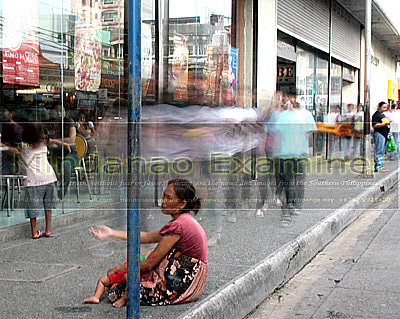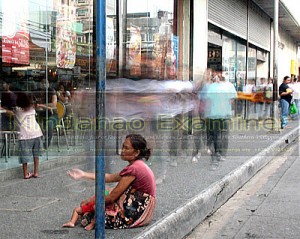
MANILA (Mindanao Examiner / Apr. 24, 2013) – The unchanged poverty statistics in the Philippines has proven once more that President Benigno Aquino’s anti-poverty programs have failed, according to youth group Anakbayan.
Vencer Crisostomo, Anakbayan national chairperson, said Aquino’s programs have in fact “institutionalized and worsened” the situation of the poor in the country while favoring the elite and foreign monopolies.
“The data released by the National Statistical Coordination Board is also an admission that Aquino’s programs are anti-people and anti-poor. Worsening poverty shows the failure of the government’s Conditional Cash Transfers or Pantawid Pamilya Program. This program is a huge corruption project that should be junked,” he said in a statement sent to the Mindanao Examiner.
Crisostomo said that Aquino’s programs pushing for continuing privatization of government services, rising prices and wage cuts have worsened the country’s poverty situation.
“The need for genuine land reform and national industrialization is ignored by the government. Its programs will not solve poverty; it is designed to further favor and enrich the monopolies, the hacienderos and the elite. Sila ang tunay na boss,” he said.
NSCB Secretary General Jose Ramon Albert reported that poverty incidence among population was estimated at 27.9% during the first semester of 2012.
Comparing this with the 2006 and 2009 first semester figures estimated at 28.8% and 28.6%, respectively, poverty remained unchanged as the computed differences are not statistically significant.
The NSCB report, using data from the Family Income and Expenditure Survey, conducted by the National Statistics Office on July 2012, measured poverty incidence or the proportion of people below the poverty line to the total population.
The report pointed out that during the first semester of 2012, a Filipino family of five needed P5,458 to meet basic food needs every month and P7,821 to stay above the poverty threshold or the basic food and non-food needs every month.
These respective amounts represented the food and poverty thresholds, which increased by 11.1% from the first semester of 2009 to the first half of 2012, compared to the 26% increase between the 1st semesters of 2006 and 2009.
The food threshold is the minimum income required by an individual to meet basic food needs and satisfy the nutritional requirements set by the Food and Nutrition Research Institute, while remaining economically and socially productive. (Mindanao Examiner)

